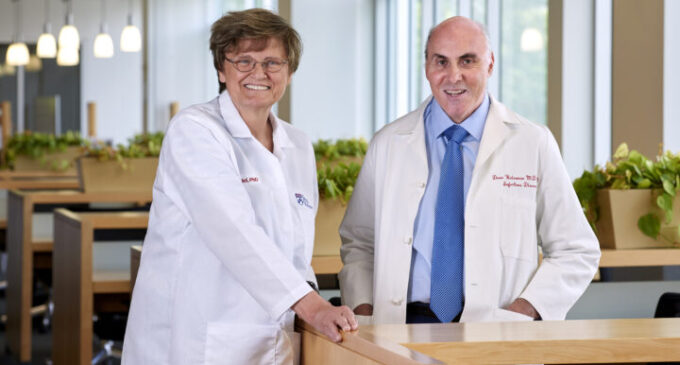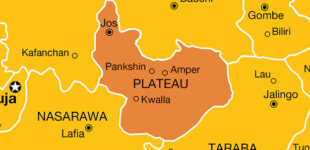Scientists behind mRNA COVID vaccines win Nobel Prize for medicine

The Nobel Prize for Physiology or Medicine has been awarded to Katalin Kariko and Drew Weissman, the scientists who developed the technology for messenger ribonucleic acid (mRNA) COVID-19 vaccine.
The Nobel Assembly at Karolinska Institute made the announcement in a statement on Monday.
The assembly said their groundbreaking findings contributed to the unprecedented rate of vaccine development during one of the greatest threats to human health in modern times.
The Nobel Prizes carry a cash award of 11 million Swedish kronor ($1 million).
The laureates will receive their awards at a ceremony on December 10.
WHAT ARE mRNA VACCINES?
Most vaccines contain a weakened or inactive piece of the target virus which triggers the production of antibodies.
But this is not the case with mRNA vaccines. These vaccines use laboratory engineering mRNA that give the cells instructions on how to create a protein that resembles a piece of protein found in the virus of concern — COVID-19 virus in this case.
Once a person is inoculated with an mRNA vaccine, the cells begin to produce these protein pieces.
Immediately the body discovers that this protein is a foreign body, it produces antibodies that stick to it and deactivate it.
Once it has been deactivated, the antibodies linger in the body for a while.
The whole point of this vaccine, like other vaccines, is that these antibodies that stay on for a while can then help the body fight that virus when next it comes in contact with it.
BREAKTHROUGH DISCOVERY
Before the pandemic, developing the mRNA technology for clinical purposes was limited because of several challenges such as the risk of inflammatory reactions, and vitro (outside the body) transcribed mRNA being considered unstable, challenging to deliver.
According to the Nobel assembly, Kariko and Weissman met in the early 1990s when they were working at the University of Pennsylvania in the US.
They then teamed up to overcome the challenges and develop methods to use mRNA for therapy.
They were said to have produced different variants of mRNA, each with unique chemical alterations in their bases.
They discovered that the inflammatory response was almost removed when base modifications were included in the mRNA.
The results were published in 2005, fifteen years before the COVID-19 pandemic.
“Through their discoveries that base modifications both reduced inflammatory responses and increased protein production, Karikó and Weissman had eliminated critical obstacles on the way to clinical applications of mRNA,” the statement reads.
“After the outbreak of the COVID-19 pandemic, two base-modified mRNA vaccines encoding the SARS-CoV-2 surface protein were developed at record speed.
“Protective effects of around 95% were reported, and both vaccines were approved as early as December 2020.
“Several other vaccines against SARS-CoV-2, based on different methodologies, were also rapidly introduced, and together, more than 13 billion COVID-19 vaccine doses have been given globally.
“The vaccines have saved millions of lives and prevented severe disease in many more, allowing societies to open and return to normal conditions.
“Through their fundamental discoveries of the importance of base modifications in mRNA, this year’s Nobel laureates critically contributed to this transformative development during one of the biggest health crises of our time.”
















There are no comments at the moment, do you want to add one?
Write a comment